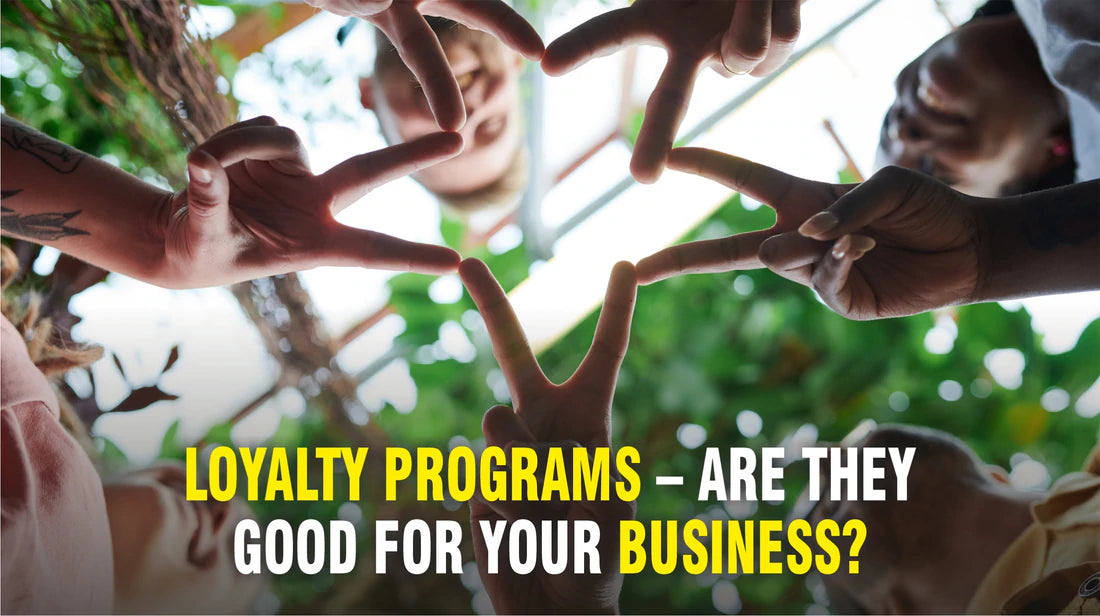
Loyalty Programs – Are they good for your business?
by Vibrant Publishers
Loyalty Programs are structured marketing programs, which are built into a brand’s marketing and promotion plan with the objective of rewarding repeat purchases (of the services or products of the brand) by the customer who thereby shows loyalty to the brand.
The development of loyalty programs as a marketing strategy was chronicled and boosted by the intense, yet healthy competition in the global business environment.
At first, many businesses, entrepreneurs and companies embraced it, but few actually practiced it. Following its success to increase sales and improve customer retention, the practitioners, onlookers and critics became religious converts; they not only accepted but believed in it.
What are the questions you must ask yourself before starting a loyalty program for your brand?
Does your brand really need a loyalty program? Or is it being implemented because your competitors are using one? For example, loyalty is almost non-existent for any branded food because the cost of trying out newer brands of foods is not very high and customers are bound to do so. In this scenario, pumping in efforts into a loyalty program may not be very worthwhile.
If you have decided to use loyalty programs, are your efforts directed in the same direction?
What would be the cost, time and resource allocation implications of such a program?
Is your front end staff ready and trained to service and “DELIGHT” these newly acquired and “Brand Loyal” customers?
It is important for your employees to have a good knowledge of customer relationship management in order to implement a solid and successful Loyalty Program. It is imperative to prepare new managers and leaders with the knowledge of building blocks of CRM as well as various facets of CRM.
Advantages of Loyalty Programs
1) Entices New Customers
In most cases, a loyalty program is geared towards rewarding existing customers. But as a natural consequence, a customer-centric loyalty program will, undoubtedly, attract new customers to your business, product or services. Potential clients or customers will be attracted to your offer and may purchase your product if they are convinced. They will get free products, discounts or rewards in the future. A report by B2B International, a global market research firm, shows that such clients or customers might even become “fans” and eventually refer other clients to your business.
This opens up the door for an opportunity to integrate the loyalty program with a customer referral program – It’s a WIN-WIN for all!
2) Increases the rate of customer retention
Perhaps the single, most important benefit of the customer loyalty program is its potential to increase customer retention rate. This program, in its different forms, allows customers to feel valued and appreciated. Consequently, this gives your customers good reasons to stay with your business to receive even more discounts, giveaways or rewards. “Businesses that increased their expenditure on customer retention over the past one to four years had a 200% likelihood of increasing their market share”, Forbes reports. Your loyalty program, therefore, should be designed as bait to incentivize additional purchases while also increasing customer retention.
3) Provides Useful Database for Marketing and Enhances Customer Engagement
During your company’s loyalty program, customers are required to fill out a form with their details, and this serves as invaluable input for database marketing. From their data, you can evaluate customer behaviour, preferences and buying behaviours. In fact, professional marketers use these details in different ways, from pricing and inventory management to tailoring their products or services to a particular group of people. A professionally designed loyalty program enables businesses to differentiate profitable buyers from unprofitable ones.
Moreover, a loyalty program enables direct, effective and two-way communication with a company’s customers. The company can disseminate new product information, benefits and features to its customers directly and the customers can convey valuable feedback about the product or service to the company. This simplifies the brand promotion and awareness efforts and increases loyalty by introducing actionable insights consistently. Thus, a loyalty program enables a business to keep its customers effectively and consistently engaged with its brand at a comparatively low cost.
4) Emotional Connect with the Brand
Over time the customers develop an emotional connection with the brand and are “Customers for life”, for the business. A good loyalty program increases customer stickiness, and such customers hardly ever try out newer products as they have a sense of trust and reliability for the brand. This denotes the true success of any loyalty program.
Disadvantages of a Customer Loyalty Program
1) Time and Money Involved
A well-planned loyalty program provides a service, product or an offer that people actually want to buy. Running a loyalty program takes away time and resources from the other parts of the business, and this may or may not be worth the effort. Hiring a professional marketer or deploying a technological system requires extra costs.
2) Customer Satisfaction gone wrong!
Loyalty programs may boomerang right back if the rewards fail to match up to the promises made by the company. For the loyalty program to gain popularity, the brand has to offer genuine discounts and rewards (both tangible and intangible) else the program might foster distrust and create a bad reputation for the brand. Losing your customers to your competitors, and that too, your most loyal ones would prove to be doubly unfortunate.
Concluding Thoughts
There is no doubt that the pros of loyalty programs outweigh its cons. You will experience a successful and profitable loyalty program if you strategically and carefully launch the program. However, it would help if you had expert advice and professional marketers for your business to retain more loyal customers.
To understand more about customer relationships in the context of marketing management, grab a copy of Marketing Management Essentials You Always Wanted To Know.
Share











